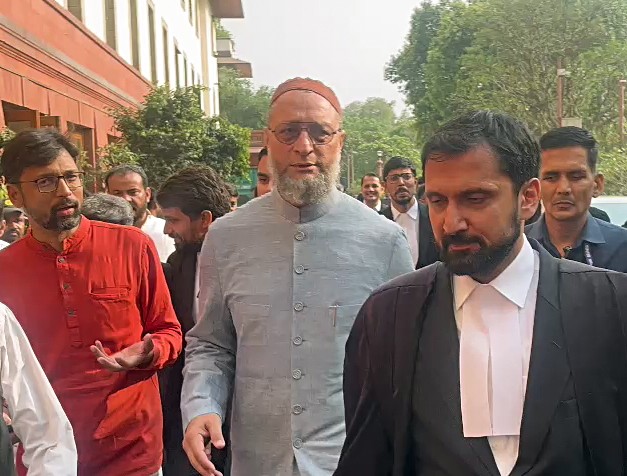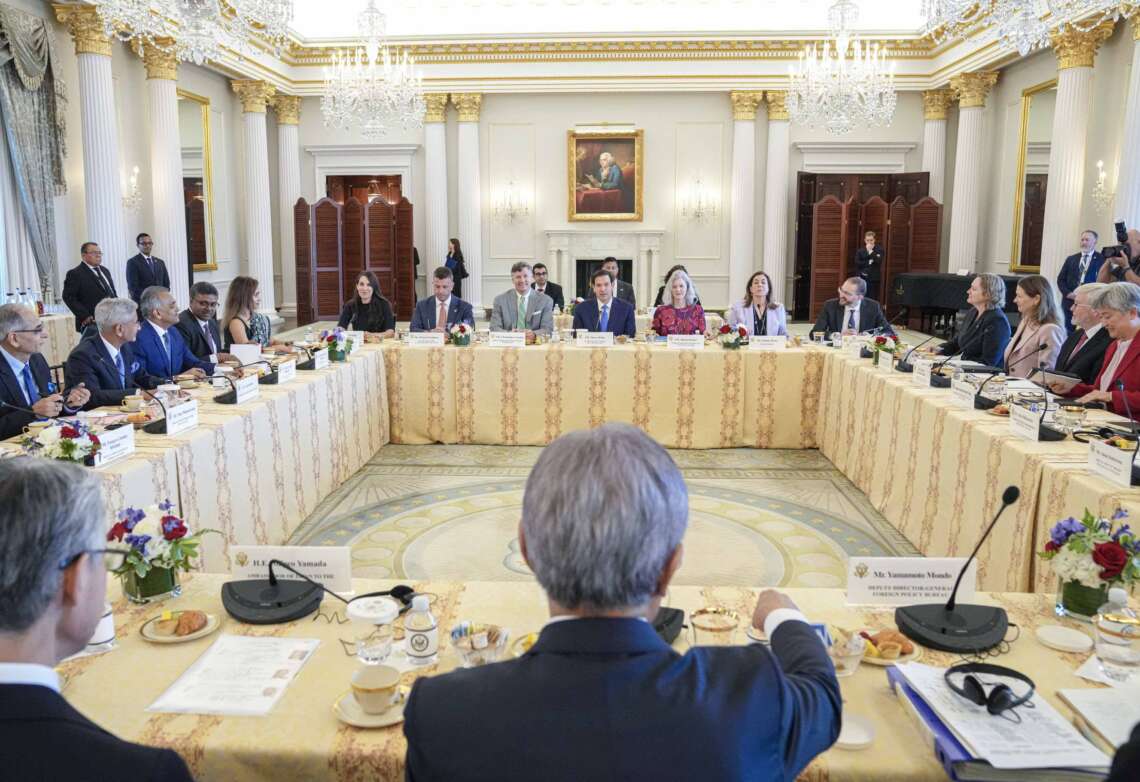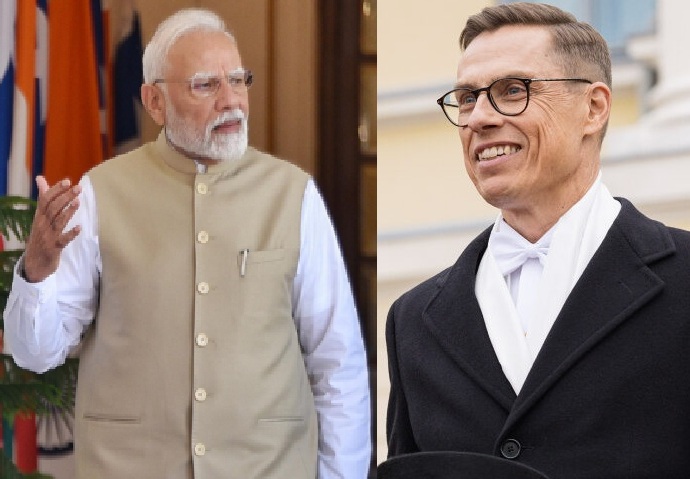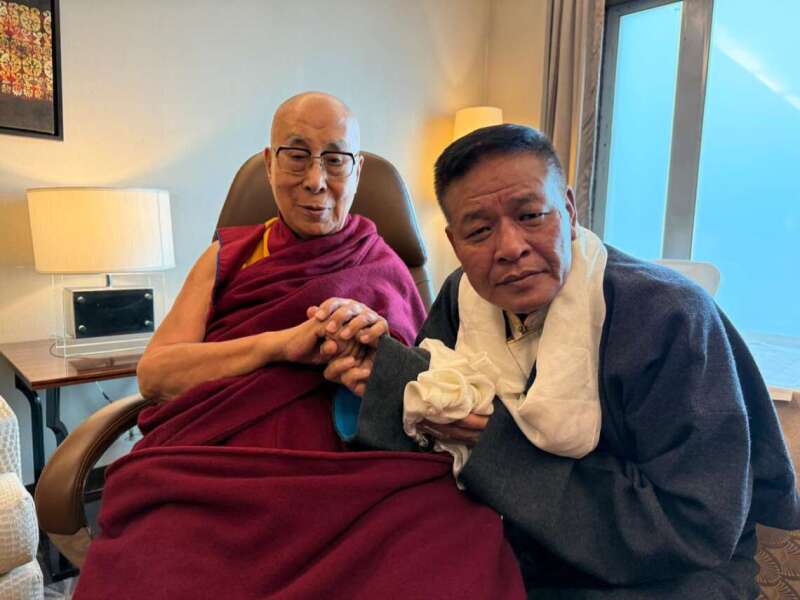During the hearing, the bench said that it is considering passing an interim order which will balance equities
The Supreme Court on Wednesday indicated that it may pass interim order to stay certain key provisions of the recently passed Waqf (Amendment) Act, 2025, and also expressed concern over violence in West Bengal’s Murshidabad district.
A three-judge bench of Chief Justice of India Sanjiv Khanna and Justices PV Sanjay Kumar and KV Viswanathan said, “The one thing is very disturbing the violence that is taking place. The issue is before the court and we will decide.”
The bench didn’t pass any order but suggested that may stay certain provision including the inclusion of non-Muslims in Central Waqf Council and Waqf Boards, powers of collectors on deciding dispute over Waqf properties and provisions on de-notifying properties declared as waqf by courts.
The apex court was hearing a batch of petitions challenging the Constitutional validity of Waqf (Amendment) Act, 2025.
During the hearing, the bench said that it is considering passing an interim order which will balance equities.
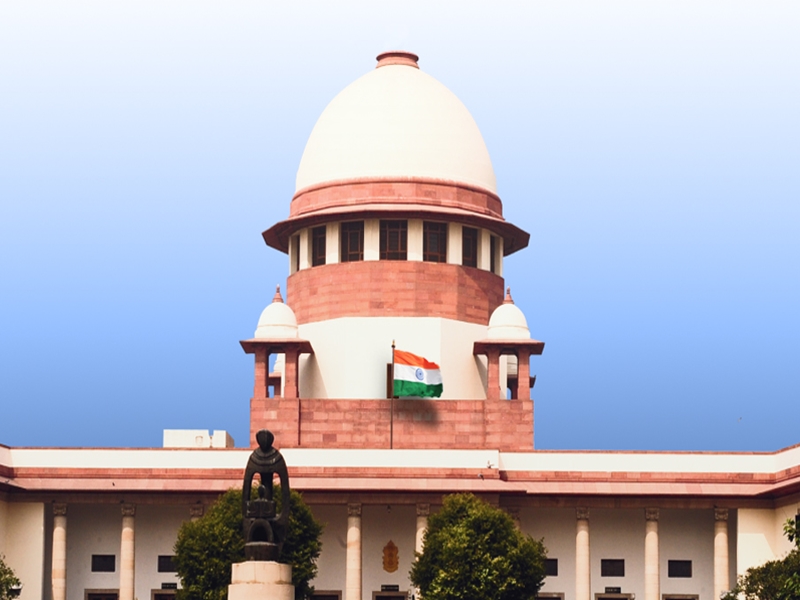
“We will say – Whichever properties were declared by court to be Waqf will not be de-notified or be treated as non Waqf, whether it is Waqf by user or not. Second, Collector can continue with proceedings, but the proviso will not be given effect to. Third, Regarding Waqf Boards and Council… ex officio members can be appointed but the other members have to Muslims,” said the bench.
CJI Khanna was about to dictate the order, but Solicitor General Tushar Mehta representing Centre and other counsels who were appearing for parties defending the Act said they should be heard before passing the interim order.
The bench then posted the matter for further hearing on Thursday at 2 pm.
During the hearing, CJI observed that government cannot rewrite the history through the changes brought in by the amendments to Waqf law while referring to the scope under the new Act to de-notify properties declared as Waqf long ago.
“When a public trust is declared to be a Waqf 100 or 200 years ago… suddenly you say it is being taken over by the Waqf board and declared otherwise,” said the bench.
The top court questioned government on how Waqf-by-user can be disallowed as many will not have requisite documents to get such Waqfs registered.
CJI asked Solicitor General, “How will government register such Waqfs-by-user? What documents will they have? It will lead to undoing something. Yes, there is some misuse but there are genuine ones also… If you undo it then it will be a problem.”
“Before the Britishers came, we did not have any registration. Many of the Masjids are created in 14th or 15th centuries. To require them to produce a registered deed is impossible. Most of the cases, say Jama Masjid Delhi, the Waqf will be Waqf-by-user,” CJI added.
On the issue of non-Muslim members in Waqf Boards and Council the bench said that the nearest example is the Hindu Charitable Endowments Act.
“Whenever it comes to Hindu endowments, it would be Hindus who would be governing,” Justice Viswanathan said.
Solicitor General said that the control would be by a Board which may consist of Hindus or non-Hindus. Justice Kumar then asked the Mehta to give an example and said that the Tirupati temple board has no Hindus.
Senior advocate Kapil Sibal, appearing for one of the petitioners, said that a Collector is the officer designated to decide whether a property is Waqf or not if there is dispute, this person is a part of the government and is thus a judge in his own cause.
“This is per se unconstitutional. This also says that property will not be a Waqf till the officer decides so. Only Muslims had been part of Waqf council and Boards but now after the amendment even Hindus can be a part of it,” he contended.
He further said that the central law regarding Sikh Gurudwaras and many state laws on Hindu Religious Endowments do not permit the inclusion of persons of other faiths in the respective Boards. “It is a parliamentary usurpation of the faith of 200 million persons,” Sibal added.
CJI asked Sibal about his objections on the provisions mandating registration. “What is wrong with it?,” asked the bench.
Sibal replied that that presently, Waqf-by-user can be created without registration. “You can register a waqf which will also help you to maintain a register,” said the bench adding that if you have a deed, there won’t be any bogus or false claims.
Senior advocate Rajeev Dhavan, representing a petitioner, said that Waqf is an essential and integral part of Islam, as charity is an essential and integral part of the faith.
Senior advocate Abhishek Manu Singhvi said that deletion of ‘Waqf-by-user’ is dangerous, as about four lakh out of eight lakh properties are Waqf-by-user, “which have now become illegal with one stroke of the pen.” (ANI)


